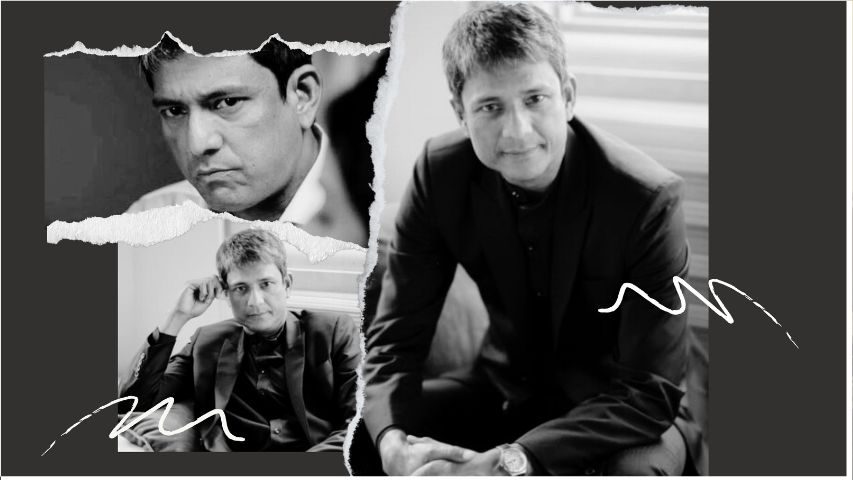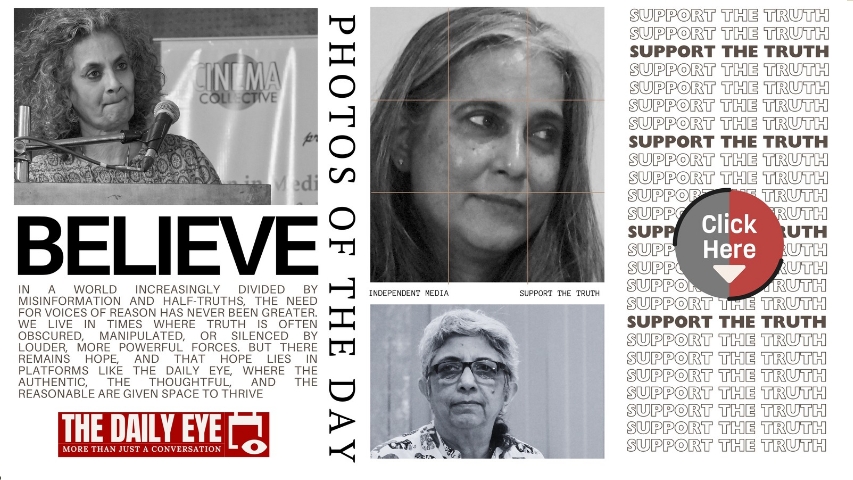
POWERFUL PEOPLE: ADIL HUSSAIN SPEAKING...!
by Monojit Lahiri October 12 2024, 12:00 am Estimated Reading Time: 7 mins, 50 secsA candid conversation with Adil Hussain, exploring his journey from Assam to global cinema, balancing art and commerce, and his thoughts on the responsibilities of filmmakers in shaping society. Monojit Lahiri does a one on one with the thespian!
In this exclusive interview, acclaimed actor Adil Hussain shares his unique journey from a small town in Assam to the global stage, working in Assamese, Bengali, Hindi, Tamil, English, and more. Known for his remarkable performances in films like Life of Pi, English Vinglish, and Ishqiya, Adil opens up about his transition from theatre to cinema, his experience working with legends like Sridevi, and why he chose to live in Delhi while pursuing a successful acting career. Discover his views on the responsibilities of filmmakers, the power of cinema to influence society, and the choices that define his creative path.
There are actors and there are stars. There is also a flood of pretenders, contenders, wannabes desperately targeting eyeballs of an audience base impatient, impulsive promiscuous hopelessly movie-mad but ironically totally cinema illiterate!
In this glorious space there is at least one actor who chooses to see the scene in an objective manner-longshots and close-ups-and offer his personal views on a line of work that can be perceived as art, commerce, entertainment, message-platform...
Enter Adil Hussain
The Journey Begins: From Assam to the World of Cinema
Monojit Lahiri: Coming from a small town in Assam with none in your family remotely connected with cinema, what happened?
Adil Hussain: [Laughs] I guess exceptions are required to add colour and drama to make life less predictable and more interesting! Actually, unlike my brothers, my friends and I were solidly hooked on Bollywood masala. I loved their larger-than-life bravado and dialogue-baazi. Our heroes were guys like Dharmendra (Jaani), Raaj Kumar, and of course, Shatrughan Sinha, whose flamboyance and masti in his dialogue delivery blew us away! I was also simultaneously interested in theatre, and very soon Bollywood went into soft focus, and theatre ruled. Somewhere, I secretly dreamt of making acting my professional calling. The bug had bitten—ouch—and I loved it!
A Life-Changing Discovery: National School of Drama
Monojit Lahiri: Defining moment?
Adil Hussain: While I was merrily bogeying along, enjoying the impossibly seductive and unattainable fantasies of the mainstream commercial cinema—picturesquely described by a mischievous genius as a product “that offended taste but inflamed the libido”—and seriously into theatre, two things happened. One, someone came by to tell me that there was a very renowned institution in Delhi, the National School of Drama, where they actually taught students the mechanics and dynamics of theatre acting in a very serious, rounded, and holistic fashion. I was astounded and delighted! Scholarships were given to select students who showed potential. That was truly life-transforming!
The other was an English/Hollywood film I saw, Papillon, starring Steve McQueen and Dustin Hoffman. It blew my mind! Were they acting? Or living the role? After the Bollywood stuff—loud, stagey, and melodramatic—this was something else. So films of this kind also happened? Wow! I immediately applied for the NSD entrance, was called, interviewed, and got through. This was my real game-changer. Initially, I was bewildered, even confused, at the range of subjects that were taught to us, all of which subconsciously connected with acting as a linear truth of self-expression. The magical fusion of images and ideas, not weighed down by obligations, nudging compromise for footfalls or front-benchers’ taalis... it was a whole new experience, and I loved it.

Transitioning from Theatre to Film: The Camera's Intimacy
Monojit Lahiri: When films arrived—Ishqiya—was the experience strange? Stage and screen acting are worlds apart with technology coming into play, full-on, and the camera grabbing one's minutest facial expressions and more.
Adil Hussain: Being a hard-core theatre person, I will not pretend and say that the transition was smooth or automatic. Due to my watching quality movies and trying to understand their approach to cinema acting, however, I did teach myself the art and science of performing in front of the camera. Less is more. Restraint in terms of body language and facial expression, nuances—I dutifully practised them with the assistance of gifted and experienced colleagues and directors. My directors, I have to admit, were hugely encouraging and appreciative, which indeed suggested I was not completely off-centre!
Working with the Legendary Sridevi: A Humbling Experience
Monojit Lahiri: What was it like working with the Diva, the matchless queen of hearts, Sridevi in English Vinglish?
Adil Hussain: When I was first told that I was to do a role for this film opposite the one and only Sridevi, I was baffled and excited in equal measure! Why me? Are you sure the front office hadn’t goofed?! Once that was out of the way and we got going, I witnessed in hard close-up the genius of this remarkable artist. To do a Sadma, Chaal Baaz, and Mr. India, with spot-on and appropriate characterization, is nothing short of a miracle. To make the bizarre so entertainingly relatable and the emotional so heart-wrenchingly genuine demands a gift that is rarely seen.
Hugely observant and quiet, her occasional suggestions were brilliant and insightful. Like the legendary Garbo, she was invisible off-screen, but once ACTION happened, a miraculous transformation zoomed in... it was indeed an unforgettable experience working with this shy, diffident explosion of talent.
On Stardom, Talent, and Contentment: A Balanced Perspective
Monojit Lahiri: Over time, you have done quite a few mainstream films and interacted—professionally at least—with that crowd. Being a hugely respected, renowned, and award-winning actor on the global stage, haven’t you ever felt frustrated, irritated, or jealous of stars/actors way below your talent, flourishing while you continue to remain in the shadows?
Adil Hussain: [Laughs] I should have gritted my teeth, thumped tables, barged my head against the wall, yelled at this cosmic injustice? Sorry to disappoint, but I have never looked at this scene that way. It really has to do with the choices you make, and very early on, I knew that I was keen on taking the road less travelled—quieter and way more fulfilling.
While I have enjoyed my stints in the mainstream scene, it is these films that have been truly enriching in every sense of the term. Can anything compare with The Life of Pi, whose universality raked up a billion dollars, on a tiny budget with everyone unknown except Ang Lee, powered it to run for five weeks in a place called Guwahati, where no English film crosses the one-week mark? I continue to revel in this kind of cinema while totally respecting the big-budget blockbusters, which have their own agenda. Live and let live.
The Global Actor: A Love for Diverse Cinemas
Monojit Lahiri: You have worked in Assamese, Bengali, Hindi, English, Tamil, Swedish, Malayalam, French—and more—films, making you a true-blue global presence! What’s been your takeaway?
Adil Hussain: Simple. Art has the power to bring people together, and cinema is commonly acknowledged as the youngest art form. If the intent is only profit and converting a film into a financially viable project, then we are at the altar of a false god. Lovers of quality cinema will find this vision and mission compromised, unsympathetic, and tunnel-visioned. Surely entertainment must be there, but not at a cost that is likely to disturb or corrupt impressionable minds because cinema is a very powerful medium, and well-packaged titillation can be dangerously injurious to the health of zillions for whom those seductive moments in a darkened hall are a green-card to the never-never-land of happy-ever-after! It can be a huge influence and cause irreparable damage in terms of values and beliefs. So, filmmakers must exercise a basic sense of responsibility.
The Choice of Staying in Delhi: Prioritizing the Soul
Monojit Lahiri: One last question—how do you manage to live in Delhi, not Mumbai, and work in films in Mumbai and elsewhere? Almost every aspirant has moved to the Mecca because that’s where the action is, and out of sight can be out of mind.
Adil Hussain: [Laughs] You are not the first person to ask me this. Confused, puzzled, and even irritated PR companies continue to quiz me on this with great passion and energy. They continue to dangle carrots and assure me that my stock would zoom up once I shift, and their social media magic would skyrocket my popularity and fees to another level.
My problem is that I am easily content with the basics. I have a beautiful family, a lovely comfortable home, and enough work to keep me engaged. I am not looking for glory, glitz, big bucks, huge limos, fancy 40th-floor sea-facing apartments, or parties where deals are struck through networking. Not my scene.
I listen to my heart and follow the path that provides me creative satisfaction. Once in a while, I do move across to do a commercial film but hurry back to reaffirm the primal communion that I have with my soul. At the end of the day, I have no regrets on the professional front and continue to enjoy my calling in full measure. So far (fingers crossed), it has worked.





-173X130.jpg)
-173X130.jpg)


-173X130.jpg)
-173X130.jpg)
-173X130.jpg)
-173X130.jpg)